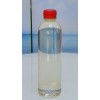尽管美国并购交易额较去年同比上升47%,但美国对中国公司的收购似乎已跌入谷底,截至目前已跌至6.11亿美元,而去年的这个时候这一数字是23亿美元,这也创造了12年来的最低水平,Dealogic表示。
问题的部分原因是缺乏大额(超过5亿美元)的交易。报告显示,到目前为止今年还没有出现这种规模的交易,而去年,同期已经有两个这样的交易,价值13亿美金。
但这不仅仅是美国的问题:今年中国的入境并购交易额迄今为止相比去年也少了10%。在“交易活动”的基础上,情况更为严峻的:只有271项协议用来今年购买中国公司,使得中国从国外并购出现从2003年以来最弱的时期,来自Dealogic的报告。
虽然Dealogic的数据没有提供对在收购美国公司到中国骤降的原因,但同时指出,中国医疗保健公司的交易值下跌,从去年的11亿美元到今年迄今为止的3000万美元。
报告说,化工部门却第一次成为美国历史上有记录以来购买最有针对性的行业。
就是说,并购活动的下降似乎预示着更大趋势的外国资金对中国的流动冻结,根据星期一公布的数据显示,七月外国直接投资相较去年同期骤降17%。
U.S. companies, and really companies all around the world, are losing interest in buying up their Chinese counterparts, according to a Dealogic report out Friday.
Even as U.S. mergers and acquisitions volume abroad is up 47% year-to-date, American purchases of Chinese companies seem to have fallen off a cliff, dropping to just $611 million so far in 2014, down from $2.3 billion at this time last year, and marking the lowest level in 12 years, Dealogic said.
Part of the problem involves a lack of big ($500 million or more) deals. The report showed no transactions of that size so far this year, while last year, there were already two such deals worth a combined $1.3 billion.
But it’s not just a U.S. issue: China’s total inbound M&A volume year-to-date is 10% less than it was at this time in 2013. And on a “deal activity” basis, the situation is even more stark: There have been just 271 agreements to buy Chinese companies this year, making Chinese M&A from abroad the weakest it’s been since 2003, Dealogic reported.
Although Dealogic didn’t offer a reason for the sudden chill in U.S. acquisitions into China, it did note that deals for Chinese health-care firms plunged from last year — $30 million year-to-date compared to $1.1 billion at this point in 2013.
The chemicals sector, meanwhile, became the most-targeted industry for U.S. purchases for the first time on record, the report said.
That said, the dro-off in mergers activity appears to be part of a larger trend of foreign money cooling to China. Data out Monday showed foreign direct investment plummeting 17% in July from a year earlier.








